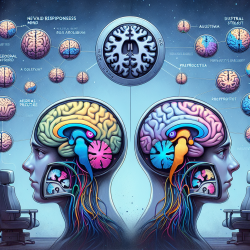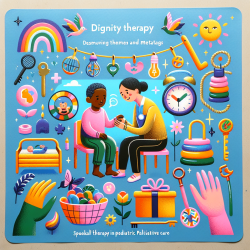The landscape of neurodevelopmental disorders such as Autism Spectrum Disorder (ASD) and Attention Deficit Hyperactivity Disorder (ADHD) is complex, with overlapping symptoms often complicating diagnosis and treatment. Recent research by Kohls et al. (2014) offers valuable insights into differentiating these disorders through neural reward responsiveness. This blog delves into the findings of this study and discusses how practitioners can leverage these insights to enhance their therapeutic approaches.
The Study at a Glance
The research focused on differentiating ASD from ADHD by examining brain responses to social and monetary rewards using functional magnetic resonance imaging (fMRI). The study revealed distinct patterns of neural activation in response to these rewards among typically developing children (TDC), children with ADHD, and those with ASD.
- ASD Findings: The study found that children with ASD displayed low striatal reactivity to both social and monetary rewards. This suggests a generalized reward processing dysfunction, which may contribute to the core social-communicative symptoms observed in ASD.
- ADHD Findings: In contrast, children with ADHD exhibited heightened medial prefrontal activation in response to social rewards, indicating an oversensitivity to social incentives. This aligns with existing theories that suggest ADHD involves dysregulated reward-seeking behaviors.
- Shared Dysfunction: Both groups showed fronto-striato-parietal hypoactivation when processing monetary rewards, highlighting a shared neural dysfunction that may underlie common symptoms such as attention deficits.
Implications for Practitioners
The findings underscore the importance of tailoring therapeutic interventions based on the specific reward responsiveness profiles of individuals with ASD or ADHD. Here are some practical applications:
- Differentiated Interventions: For children with ASD, interventions might focus on enhancing motivation through tangible rewards rather than social incentives, given their diminished response to social rewards.
- Social Skills Training: Practitioners working with children with ADHD could incorporate strategies that manage their heightened sensitivity to social rewards, potentially reducing impulsive behaviors driven by the desire for social approval.
- Cognitive Behavioral Approaches: Understanding the shared neural dysfunctions can guide the development of cognitive behavioral strategies that address common challenges such as attention control and executive function deficits.
The Path Forward: Encouraging Further Research
This study opens avenues for further exploration into the neurobiological underpinnings of ASD and ADHD. Practitioners are encouraged to stay informed about ongoing research in this field, as it holds promise for refining diagnostic criteria and enhancing intervention strategies.
Differentiating neural reward responsiveness in autism versus ADHD










